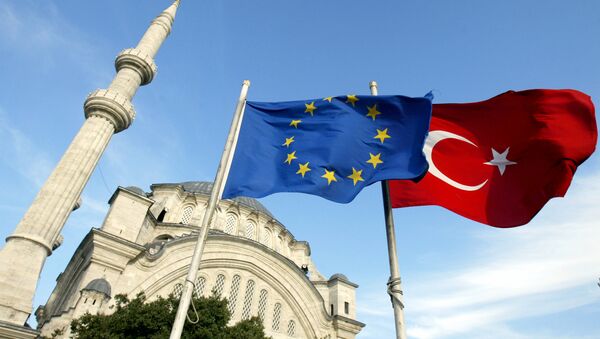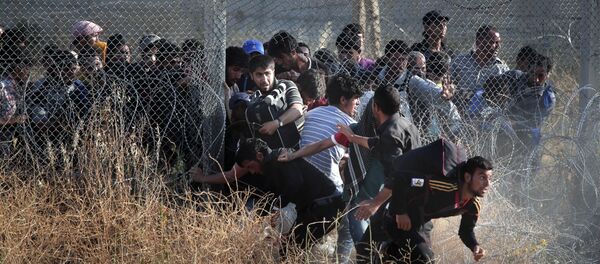Speaking to Sputnik Turkey, Sonumut, NTV bureau chief in Brussels, recalled that the level of tensions between the EU and Ankara has escalated dramatically in recent weeks. Together with the unexpected election of Donald Trump to the presidency, the EU's conflict with Brussels has contributed to an atmosphere of panic in the European capital.
"In the current circumstances, at least for the near future, the EU has no possibility of implementing initiatives in key areas such as the interaction between Brussels and NATO, relations with Russia, Middle East strategy and the fight against Daesh (ISIL/ISIS)," Sonumut explained.
Effectively, the journalist suggested that "the EU is going through a period where it is becoming weaker, both from an economic and political perspective and in terms of security." Hypothetically, the EU might try, like Russia and the US, to act as a force that promotes security in the international arena. The problem with that idea, according to Sonumut, is that "the EU is not in a position to carry out this function. It does not have the necessary political will and the necessary resources."
As for Washington, their policy now faces a 180 degree shift after the unexpected election of Donald Trump. "Trump is in favor of rational, balanced relations with Russia, and does not want to engage in confrontation with Moscow, considering Daesh to be the only common enemy for the US and the EU. In this way, it's obvious that the positions of the EU and the US on this issue diverge."
At the same time, Sonumut noted that having put all its hopes on a Clinton victory, "Brussels does not have any Plan B on how to build cooperation with the US after Trump's arrival."
Turkish-EU Relations
In recent weeks and days, relations between Ankara and bureaucrats in Brussels have dropped to possibly their all-time low. On Tuesday, Foreign Minister Mevlut Cavusoglu complained that Ankara was "truly fed up" with Brussels' "double standards" and degrading commentary toward Turkey.
Commenting on the strain in relations, Sonumut told Sputnik that a complete rupture in relations between the two parties is unlikely, for several reasons.
"Turkey remains a partner for the EU on the issues of intelligence sharing, security and the migrant crisis. If negotiations between Turkey and the EU are suspended, the path to further dialogue on these issues will be permanently closed. If negotiations are suspended, and Turkey later fulfills the conditions set forth by Brussels, the EU will find it impossible to achieve the consensus necessary to resume negotiations."
"But threats and pressure toward Ankara won't allow any results to be achieved," the journalist concluded.




